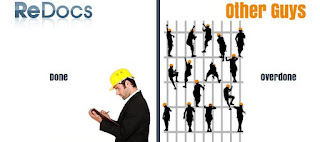New York City Local Law 87
Local Law 87 is both a useful and onerous
requirement for NYC owners and managers. The process helps to identify energy
savings, but the costs of compliance can be significant.
Water Reduction
Redocs can reduce your building’s water &
sewer costs substantially with no cost to you and with guaranteed savings.
Water has stealthily become a major building
operating expense. It is now mentioned in the same breath as taxes,
insurance, and oil & natural gas. It is not uncommon to see water &
sewer costs in excess of $1000 per apartment.
Fortunately, buildings can fight back, and in a
major way. Straightforward water reduction options exist which can result in
cost savings of as much as 30 to 50 percent.
Added Bonus – Oil
and Natural Gas Savings
In addition to lower waters costs, reduced water
usage also
means lower oil or
natural gas costs. 30 to 40% of a buildings heating oil or natural gas bill is
made up of the cost of heating hot water. When less water is used, less energy
is required to heat the water.
Steam-Heat Balancing
Redocs can dramatically reduce your heating oil
or natural gas bills simply by getting your heating system working the way it
was intended.
Apartment 6A should be the same temperature as
apartment 6J during the winter. As most apartment building owners,
co-ops, and condos know, this is rarely the case. The reality is
that apartment 6A could be 80 degrees(overheated) and apartment 6J could be 65
degrees(under-heated). The fact that one apartment is too hot means that the
building is using far more heating fuel than is necessary. The fact that the
other apartment is too cold means that the heat is not effectively getting to
certain apartments. It is the number one cause of excessive heating fuel costs.
Further, it is a situation often made worse as the building attempts to provide
even more heat to the building in an effort to satisfy the low temperature
apartments
.
Fortunately, this can be resolved and buildings
can significantly reduce their heating oil and/or natural gas costs. Every
temperature degree reduced is equivalent to a 3-5% heating fuel reduction.
Imagine being able to heat all the apartments to a comfortable 72 or 73 degrees
instead of heating some apartments to temperatures of 80 degrees and
higher. Imagine the energy savings.
New
York City Local Law 87 requires that all New York City buildings greater
than 50,000 square feet undergo a professional energy assessment and that the
results of this assessment be filed as a report with the New York City
Department of Buildings



